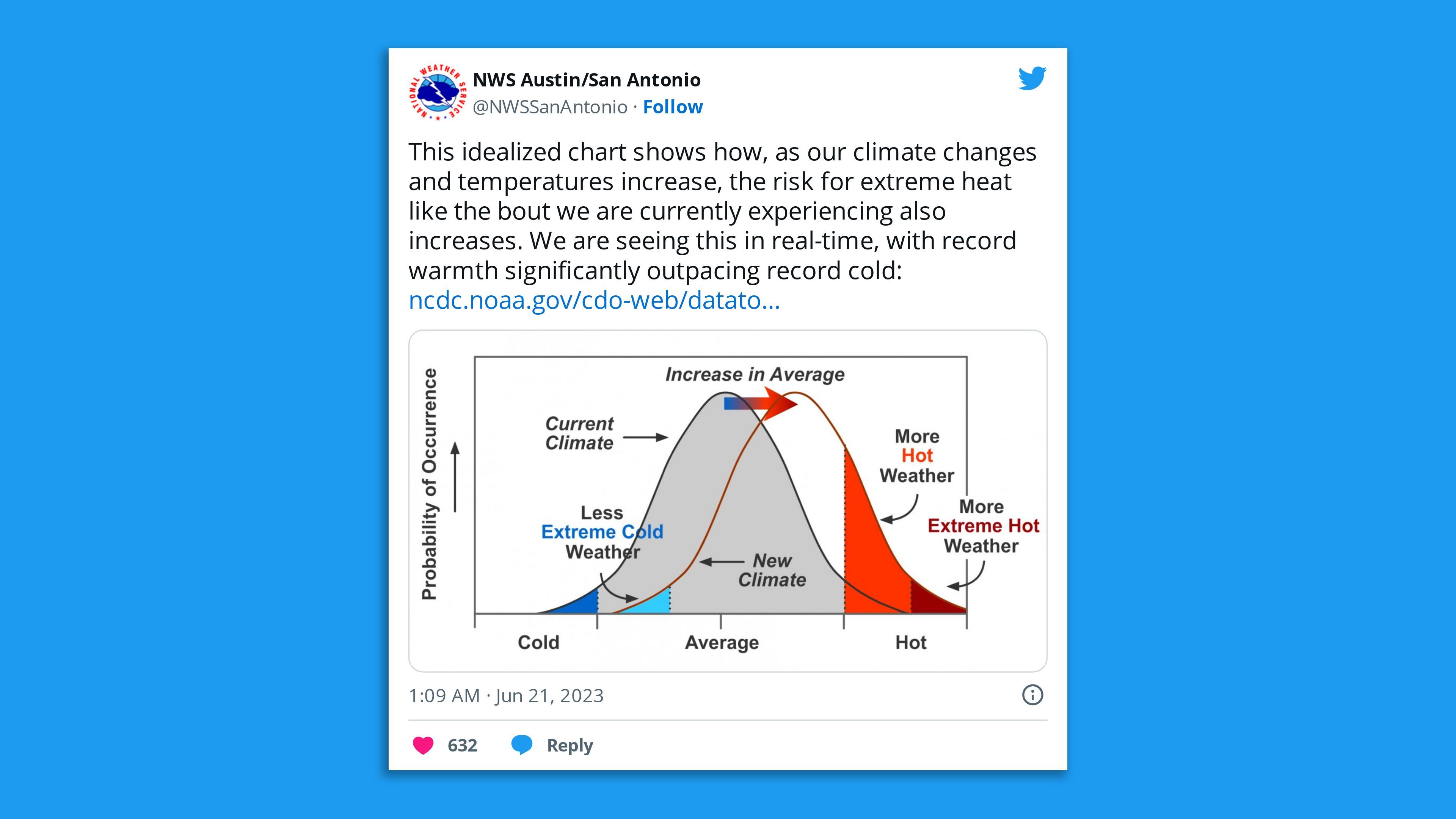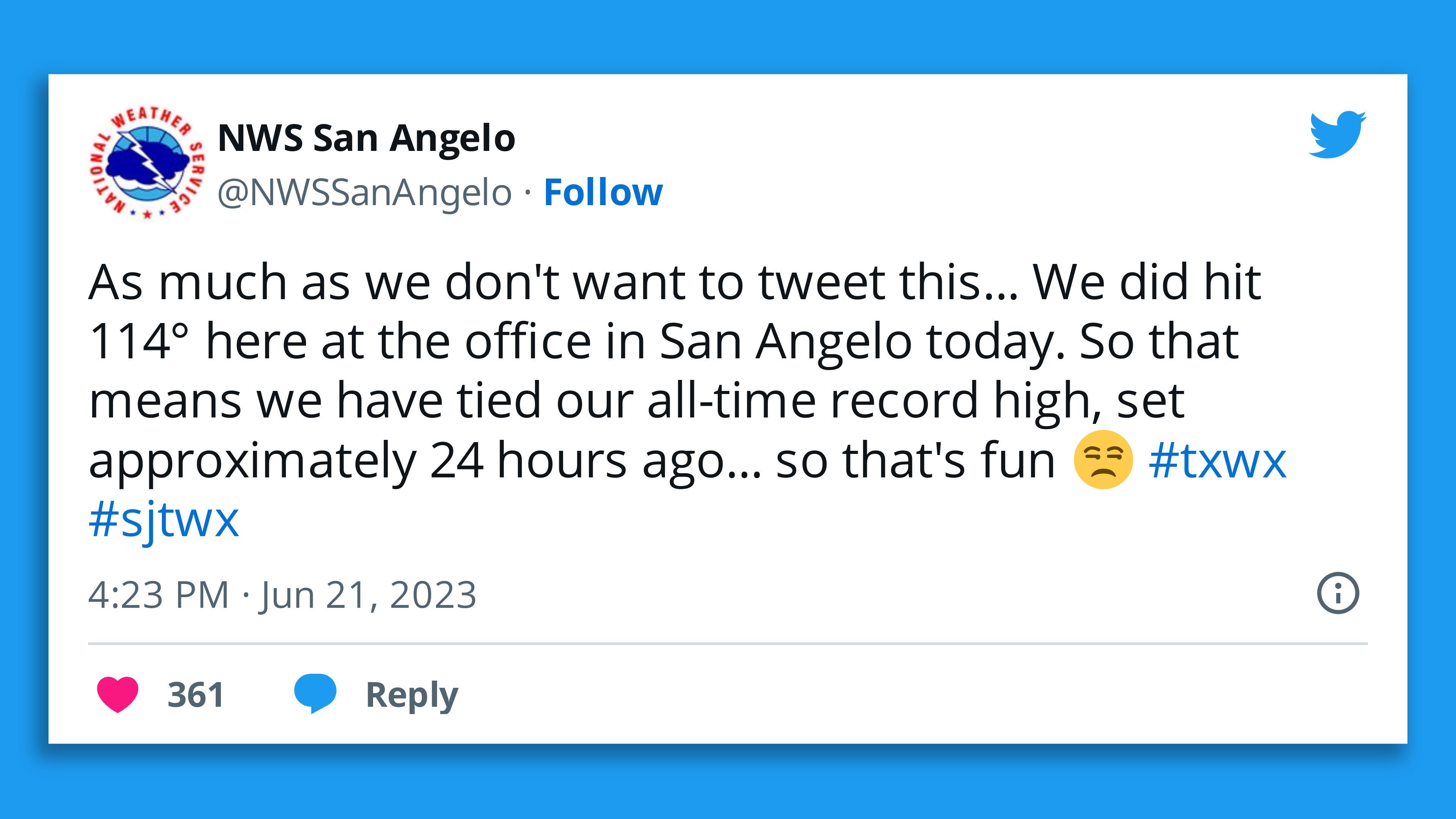An "oppressive" record-breaking heat wave that's helped fuel deadly storms in Texas and surrounding states could continue through the Fourth of July holiday weekend, the National Weather Service warned Wednesday.
Why it matters: Extreme heat poses a threat to people's health, can lead to hospitals dealing with an influx of patients with heat-related illnesses, and it's the top weather-related killer in the U.S. in a typical year. It also puts a heavy strain on power grids.

- Summers have gotten hotter for many U.S. cities and they're becoming deadlier as climate change drives more extreme weather events, studies show.
State of play: Texas, New Mexico, Oklahoma and Louisiana were under heat warnings and advisories on Wednesday.
- In Dallas, where an excessive heat warning was in place amid high humidity, the USPS told ABC News Wednesday that a postal worker died while working in the city due to the heat.
- In addition to triple-digit temperatures, severe storms in Texas, Oklahoma and Louisiana have spawned tornadoes and caused widespread power outages in the three states this week.
- A tornado in northern Texas killed at least three people in the town of Matador on Wednesday night as a line of storms spawned multiple tornadoes across the Rolling Plains, per the New York Times.
Zoom in: Over 440,000 customers were without power in Texas on Wednesday night, according to utility tracker poweroutage.us.
- Most were in the Houston area, where the NWS said a line of severe storms was moving through.
- "Gusts over 60 MPH have been reported with these storms. Damaging wind gusts the primary concern. Hail is possible," per the NWS statement.
Zoom out: The NWS' Weather Prediction Center warned the intense heat wave in Texas and parts of the southern U.S. would continue for the rest of the week, with "sweltering temperatures" that could set new records persisting into next week.
- These regions are forecast to experience heat index values "well in excess of 100 degrees," according to the NWS WPC.
Threat level: "There may be more danger than a typical heat event, due to the longevity of near-record or record high nighttime lows and elevated heat index readings," per the prediction center.
- "It is essential to have a way to cool down and interrupt heat exposure."
What we're watching: There's "increasing confidence that this dangerous heat wave will continue through the beginning of the July 4th holiday week, with excessive periods of heat expanding from Texas into surrounding states," the NWS said in its statement.

Editor's note: This article has been updated with new details throughout.







